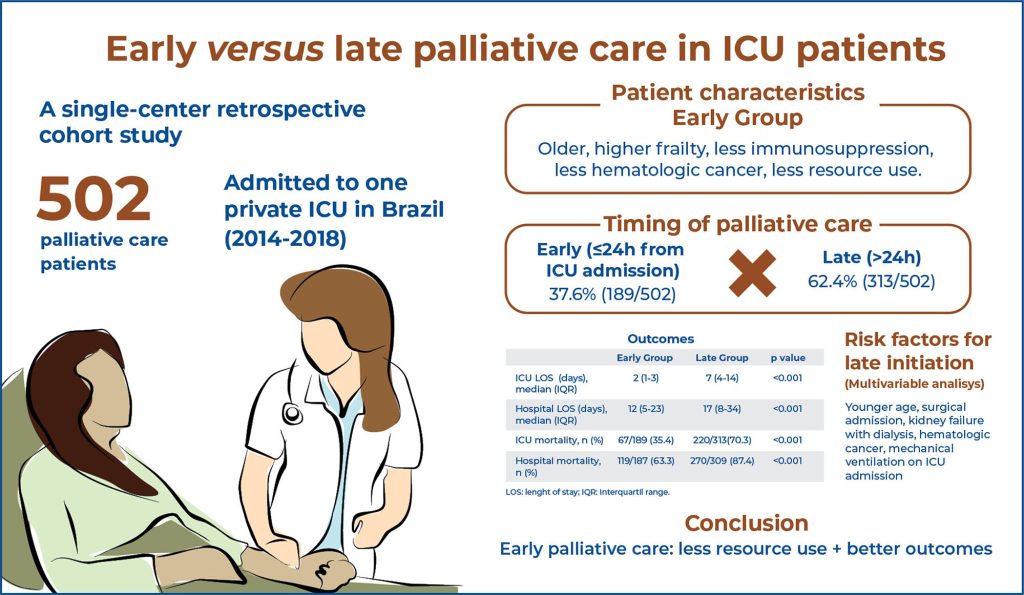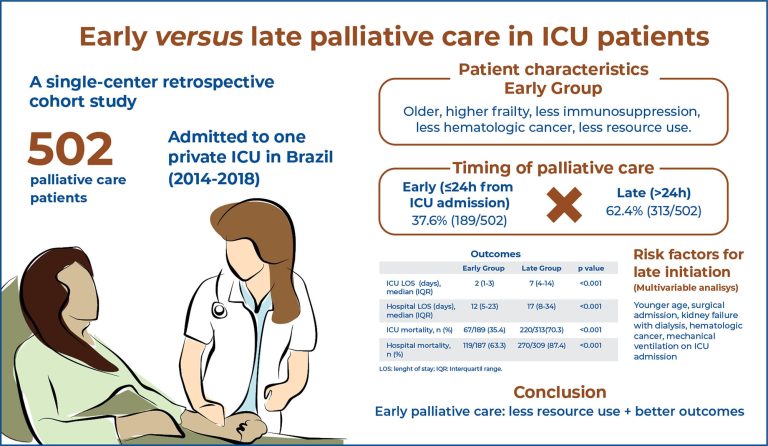einstein (São Paulo). 10/nov/2025;23:eAO1491.
Characteristics and outcomes of patients receiving palliative care in the intensive care unit: retrospective single-center cohort study
DOI: 10.31744/einstein_journal/2025AO1491
Highlights
■ Patients who received early palliative care were younger with more immunosuppression.
■ Intensive care unit and hospital mortality were higher with late palliative care.
■ Early palliative care reduced the use of advanced life support resources.
ABSTRACT
Objectives:
To describe the use of advanced life support, resource utilization, and clinical outcomes and to identify the risk factors for late initiation of palliative care support in patients at the intensive care unit.
Methods:
A retrospective, single-center cohort study conducted in a private intensive care unit. All patients aged ≥18 years in palliative care admitted to the intensive care unit between January 1, 2014, and December 31, 2018, were eligible. Patients were categorized based on the timing of palliative care initiation: Early Group (palliative care instituted before or within 24 h of intensive care unit admission) and Late Group (palliative care instituted after 24 h of intensive care unit admission). Comparisons were made between the two groups.
Results:
Overall, 502 patients were included in this analysis. The Early Group accounted for 37.6% (189/502) of patients and the Late Group for 62.4% (313/502). Patients in the Early Group were older, had a higher modified frailty index, and had lower rates of immunosuppression or hematologic cancers. During the intensive care unit stay, the Early Group required less mechanical ventilation, vasopressors, renal replacement therapy, red blood cell transfusions and parenteral nutrition compared to the Late Group. Additionally, the Early Group had lower intensive care unit and hospital stay and mortality compared to the Late Group. Independent predictors of late initiation of palliative care in the multivariate analysis included younger age, being a surgical patient, chronic kidney disease requiring renal replacement therapy, hematologic cancer, and the need for mechanical ventilation at intensive care unit admission.
Conclusion:
Early implementation of palliative care was associated with reduced resource utilization and improved clinical outcomes.
[…]
85



